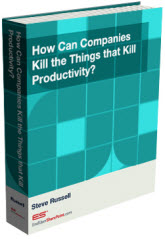It’s All in the Way You Ask the Question
(Nerds are going to find this post dead boring).
Before I start, let me state that I am a believer in the Honey and Mumford theory of learning styles, as well as the Marston DISC assessment. I think both are closely related, and go some way to explaining many mysteries of the world like – "Why are there Metrosexuals?", "Why doesn’t everyone listen to Opeth?" and most importantly of all "What goes on in the strange world that is the engineer mind"?
"Engineer mind"?
Don’t bother googling that term because I made my own definition. I’m really referring to tech nerds generally, but the definition actually extends beyond nerds to a certain type of personality that tends to be a combination of an Activist learning style with a Steady/Conscientious DISC profile.
The point is that engineer minded people live in a factual world. Questions are factual and answers are usually pretty absolute. An engineer’s dogma also has a way to make facts more ‘factual’ in their eyes as well.
For a chunk of the rest of humanity, factual questions are not quite that factual. In many contexts, particularly political ones, a factual question is often open to more liberal interpretation.
This is in essence why engineers dress badly and sales people commonly exhibit metrosexual tendencies.
Disconnect = confusion
More importantly than metrosexuality, this disconnection is often the root of misunderstandings and miscommunications. The reason is that the simple wording of a question is interpreted very differently by these two types of thinkers. This is most often exposed during project meetings. To the engineer, these requirements are immutable facts. This is *how* the system is going to work. To the non engineer, the functional specification is *what* the system is going to do – subtle but very different.
There are two main types of questions that highlight how easy it is for confusion to arise. They are
- ‘Big picture’ questions that start with "What". In asking them, participants are thinking about "general" solutions or approaches to solving the problem. Jeff Conklin in his book
 calls these Deontic questions.
calls these Deontic questions. - Instrumental/factual questions that tend to start with "How". In asking them, there is an implicit assumption that something is going to be done, and the focus is how to go about doing it.
Some engineers tend to jump straight to the "How" and do not spend a lot of time looking at the "What". I catch myself doing it all the time. Where the confusion stems from is the implicit assumptions in factual based questions. To the engineer thinker, the implicit assumption is actually explicit. To the non engineer thinker, the implicit assumption is often missed because they are still at the "what" stage.
Worst still, we unconsciously have a way of making a factual question look like a deontic question. This confuses everyone – even other engineers! Consider this obvious but rather blatant example of an instrumental question masquerading as a deontic question.
"What is the best way to fix SharePoint governance?"
It is a "what" question, so, is it deontic? No. The trick is in the statement "fix SharePoint governance". It is an implied course of action and therefore is in fact a factual style of question.
Consider these examples of the same question asked in three different ways.
| Question |
Question Type |
Context |
Asked by |
|
How can we prevent our SharePoint projects failing? |
Factual |
Negative |
Engineer |
|
How can we have successful SharePoint projects? |
Factual |
Positive |
Engineer |
|
What should we do to maximize the success of our SharePoint projects? |
Deontic |
Neutral |
Non Engineer |
The first factual (how) question is framed in a negative context. To some, this will imply that past SharePoint projects were failures. Whether this is true or not, most engineers would not give it a second thought, but in a highly political environment, this can easily be misconstrued as bias. Additionally, it also has the effect of reinforcing the negative feel in the answers to the question.
The second factual question changes the frame from negative to positive. "How to prevent…" changes to "how to succeed". This is likely to be a better question in a political sense, but it is still factual. It’s in the same vein as child psychologists teaching parents to not use ‘"Don’t…" with their kids. For example, instead of telling your kids "Please don’t mess up your room" use "Please keep your room tidy!"
The third question changes the frame of the question into a deontic question, characterized by the "What" and the fact that there is no implied course of action in the wording of the question.
When you think about this third question, it can be answered by a broader range of ideas than the how questions. By asking "what should we do", we are more likely to quantify "what is the problem", rather than dive straight into the "how should we solve the problem" line of questioning and then finding ourselves getting caught up in courses of actions. It may be subtle, but often when you start out with a "how" question, there is usually an implied deontic question that may be different for each participant. Thus, if you do not make that root question explicit, it is easy to see how people can very quickly not be on the same page. How do you know if you are all solving a common problem?
You are kidding, right?
I know what you are saying. Is there really that much of a big deal over whether a question is deontic or instrumental? You wouldn’t think so, would you, but SharePoint projects are prone to take on wicked tendencies for reasons previously discussed. One of the techniques for dealing with wicked problems is through shared understanding among participants. A complex product like SharePoint often has inevitably fluid requirements that arise from different levels of understanding. Therefore, even small misunderstandings at the start of the journey can become big problems if the delivered product includes assumptions that were never tested.
So next time someone in the business asks you a question about something new, or something previously not done before, listen carefully to the question being asked and see how often you catch yourself diving straight into the ‘how’ before asking the ‘what’ question.
Thanks for reading
Paul Culmsee
www.cleverworkarounds.com











 on
on
Nice article.
Also, Kudos on the Opeth reference! :)